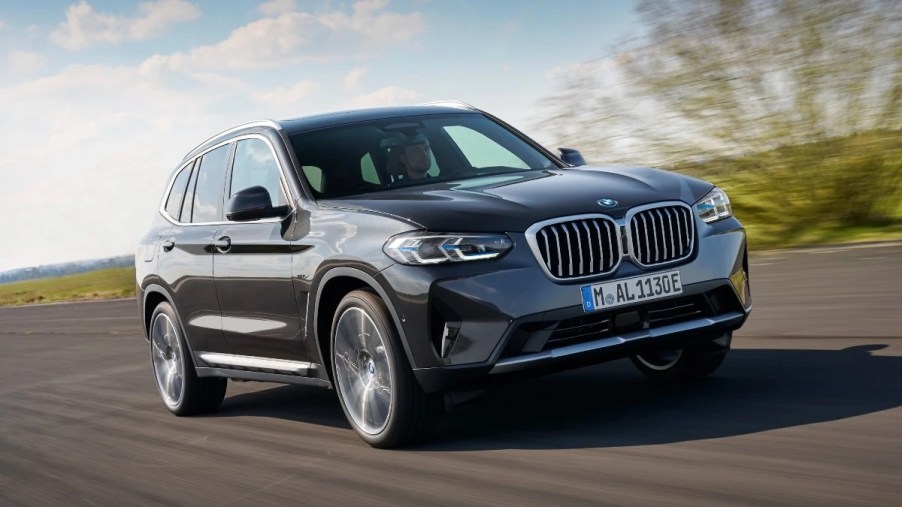
Why Do Luxury Cars Have Boring Names With Numbers and Letters?
By nature, luxury cars typically have better performance, more premium features, and higher-quality designs compared to mainstream models. With this in mind, one might think that luxury cars would have magnificent names to match their top-tier features and capabilities. However, the opposite is usually true. Many luxury cars have boring alphanumeric names with numbers and letters. To find out why, let’s take a closer look.
Luxury cars with boring alphanumeric names

When you look across the luxury car landscape, you’ll find a multitude of luxury cars with boring and unremarkable alphanumeric names. BMW, one of the most popular luxury automakers, has a “number,” followed by “Series,” for its sedans and coupes. Examples include the 3 Series, 4 Series, and 5 Series. For its SUV lineup, BMW has an “X,” followed by a number, such as the X1, X2, and X3.
Many other luxury automakers use an alphanumeric naming system for their models, including Audi, Lexus, Infiniti, Volvo, and Genesis. Additionally, Mercedes-Benz, while it doesn’t use serial numbers, features a “letter” naming system for its models. The Mercedes-Benz models have a letter or group of letters, along with the “Class” designation for various models, such as the C-Class, E-Class, and GLC.
Also, there’s Tesla with the Model 3, Model S, Model Y, and Model X. Tesla will eventually break away from the basic naming system with the Cybertruck. However, with its many delays, we’re waiting to see when the Cybertruck will finally become available.
Alphanumeric car names translate better to international markets

Many luxury automotive brands have an extensive global presence, with vehicles sold in many countries. With the different languages that are spoken around the world, it makes sense to have a simpler name that translates well to international markets.
While an elaborate vehicle name might sound good in the automaker’s home country, it could be confusing to customers in a country where most of the population speaks a different language. With this in mind, it’s best to keep the names simple to ensure global success.
Name and number system is a code for higher status and luxury
The alphanumeric naming system for some luxury cars is also a code for a higher status and level of luxury. For example, as the numbers increase in the BMW model lineup, the vehicles get more luxurious and expensive. Also, the “Class” naming system for Mercedes-Benz models helps luxury car buyers identify the various vehicle classifications.
Alphanumeric names make it easier to market luxury vehicles

Another reason for the boring alphanumeric names is it makes it easier to market luxury cars while adding an element of predictability. For example, BMWs are complex vehicles, and it might be difficult for customers to understand the differences between each model. However, the letter and number naming system helps organize the various models according to their attributes.
Many of the good car names are already trademarked
Additionally, luxury automakers are running out of good names for cars. In an interview with the Chicago Tribune, Susan Broniardzyk, a marketing professor at the University of Texas, said, “Most common words are already trademarked, and so automotive companies would need to resort to fictitious names (Kodak), add or change a letter (Lyft).
Also, Cadillac, which has unique names for some of its models, such as the Escalade SUV, has resorted to using alphanumeric names in recent years. This includes using the “CT” designation for its sedans, such as the CT4, and the “XT” designation for SUVs, such as the XT5.
David Caldwell, a General Motors spokesperson, indicated that part of the reason for this naming system is that the automaker is “running out of prestigious-sounding names.” He said, “We need more names.”


